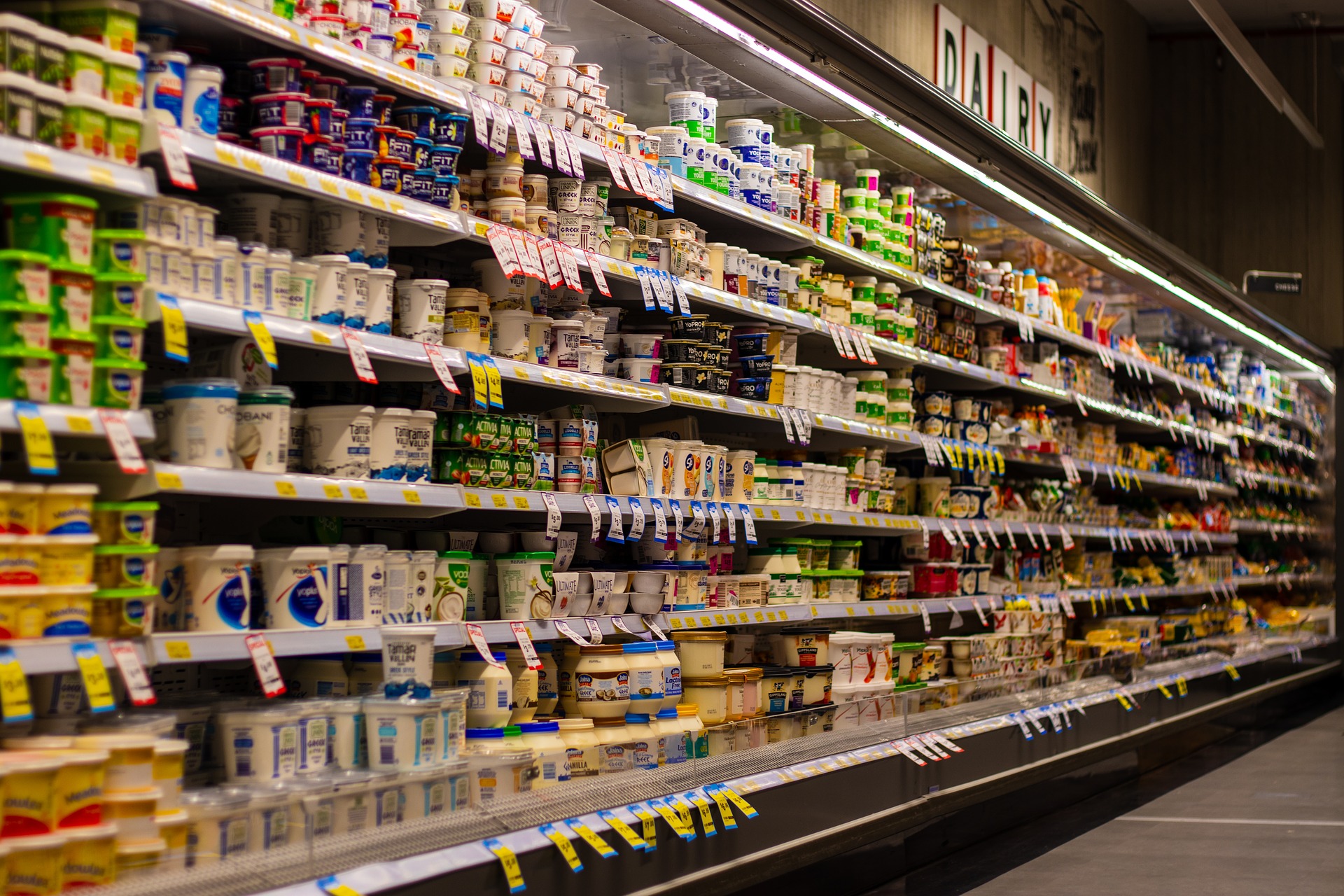Try our new free GreenChoice - Food Scanner mobile app!
DOWNLOAD-
-
-
Diets
Allergies
Take our 30-second quiz & we’ll filter our site to show only products that match your dietary preferences.
- GCNow
- Ultra-Processed Food: What Is It and Can It Fit Into a Healthy Diet?
Ultra-Processed Food: What Is It and Can It Fit Into a Healthy Diet?
Author: Sydney WexlerPublished: August 29, 2021

We’ll come right out and say it – despite what many of us have been told, processed foods aren’t killing you. It’s what’s been added (or removed) that really matters.
Processed foods get a bad rap, but the truth is that they’re not inherently “bad.”
The term processed just means changed.
In the case of food, it refers to the methods by which fresh foods are turned into food products (1). The key is the level of processing:
Imagine you have an apple, in its whole, natural form – that’s unprocessed.
That apple gets turned into applesauce. It’s been physically processed, via cooking, into something different from its natural state, but it still contains many of the same nutrients and fiber that apples have.
Now, think about something like Apple Jacks. That apple was turned into apple juice concentrate and combined with sugar, hydrogenated oil, artificial additives, food dyes, and other ingredients.
That would be your example of ultra-processed food, and it looks and tastes pretty far off from the natural ingredients it came from.
Compared to processed food, “ultra-processed” food typically has a number of additives that wouldn’t be found in food prepared from whole ingredients at home (2) – this includes ingredients like food dyes, artificial sweeteners, nutritional supplements, gums, and preservatives.

We encounter these foods at all different stages of their processing. In the grocery store center aisle, almost everything that comes in a package has been processed in some way, whether cooked, pasteurized, canned, frozen, or dehydrated.
Ultra-Processed Food Has Its Advantages
Though processed foods wouldn’t be the first thing to come to mind when we think of important public health interventions, they have actually played an extremely influential role in improving our health.
On one hand, fortification – adding nutrients to food – is a type of processing that has clear-cut advantages for health.
Given that the average American consumes less whole fruits, vegetables, and grains than recommended, fortified foods play an important role in preventing widespread nutrient deficiencies.
Processing also helps food stay fresh for longer, preventing waste and allowing our food supply to remain safe, shelf-stable, and highly accessible (3).
Downsides of Ultra-Processed Food
On the other hand, most ultra-processed food items are stripped of the nutrients found in their whole form and have added ingredients that are linked to negative health outcomes.
Cookies, chips, baked goods, and other processed snacks and sweets tend to contain coconut, palm, and palm kernel oil. These ingredients are high in saturated fat, which is associated with heart disease, cancer, and obesity. The Dietary Reference suggests that we obtain less than 10% of our daily calorie intake from saturated fat (4).
Like saturated fats, trans fats can also be found in ultra-processed food and contribute to raising blood cholesterol, which can increase the risk of heart disease and death from heart failure.
Ultra-processed food tends to be higher in sodium, added sugar, and potentially harmful food additives and preservatives. Added sugar, in particular, is linked to numerous health risks, including liver disease, heart disease, obesity, and diabetes (5).
Additionally, high heat and pressure that occurs in most food processing methods tend to remove many essential nutrients and fiber from food products.
For example, grains are important because they can provide a variety of important nutrients, including folate, niacin, riboflavin, thiamin, iron, magnesium, selenium, and fiber. But when they are processed into refined grains, these nutrients and fiber are stripped away. As a result, glucose enters the bloodstream much more quickly, which causes fluctuations in blood sugar that are correlated with diabetes and other health issues. (3, 6, 7).
For these reasons, ultra-processed foods provide close to 60% of energy intake and 90% of added sugars in the American diet (8).
For these reasons, studies have linked an increased intake of ultra-processed foods with an increased risk of heart disease and overall mortality (9).
Ultra-processed foods tend to be what many refer to as “empty calories” – high in energy but provide little to no nutritional value.
Fiber, for example, helps us feel fuller for longer, provides sustained energy throughout the day, and aids indigestion. However, it’s often missing in ultra-processed foods, which is why we might experience that lethargic feeling after eating a highly processed meal that we usually call “a sugar crash” (10, 11).
Tips for Shopping for Processed Food
At the end of the day, processed foods offer the convenience that most of us are looking for when shopping for an easy breakfast option or quick on-the-go snack.
The good news is, many processed foods offer added nutrition in addition to their convenience. Even ultra-processed food can have a place in a healthy diet when consumed in moderation.
In order to choose pre-packaged foods that are both easy and nutritious, it’s helpful to know what you’re looking for when navigating grocery store aisles. Here are our top tips for shopping:
- Shop the perimeter. That’s where you’ll find most of the fresh, whole ingredients. The center aisles of the grocery store are where all the highly processed foods are placed.
- Check the ingredient list. Ingredients are listed in descending order by weight. If you’re looking to reduce your intake of added sugar, for example, make sure it isn’t one of the first few ingredients listed on the label. Prioritize foods that have whole grains and whole plant-based ingredients listed first.
- Choose options that are low in saturated fat and added sugar. Look for items with less than 5% of the daily value of saturated fat and added sugar.
- Choose options that are high in fiber, protein, and vitamins. Items with more than 10% of the daily value are considered good sources of these nutrients.
- Choose whole grains. To help identify whole grains, look for the word “whole” or “whole grain” in front of the grain name — for example, “whole grain wheat flour” — this indicates that it is made with whole grains. In addition, oats, oatmeal, brown rice, and wheatberries as the first ingredient indicate it is made with whole grains. Don’t be fooled by buzzwords “multigrain” or “enriched” – that doesn’t necessarily mean it’s whole grain.

Ultra-Processed Food: The Bottom Line
When food has been processed, it ultimately means it’s been altered in one way or another. Based on this definition, not all processed foods are created equal.
Foods with added nutrients or ingredients meant to improve shelf-life can help improve the quality of one’s diet.
Conversely, many ultra-processed foods have been stripped of essential nutrients and contain additives that are linked to excessive calorie intake and negative health effects.
When shopping for pre-packaged food, look for items that are high in fiber, vitamins, and minerals, while limiting the intake of added sugar, saturated fat, and sodium. If you’re looking to decrease your consumption of ultra-processed ingredients, head towards the perimeter of the grocery store, where you’ll find more fresh, whole foods.
***
GreenChoice, PBC has evaluated and rated more than 340,000 food & beverage products across hundreds of attributes related to diet, health, and sustainability. Easily find the best products for you, the planet, & your budget. Sign up to access the GreenChoice marketplace, the first carbon-neutral online grocery marketplace for healthy, climate-friendly shopping.
